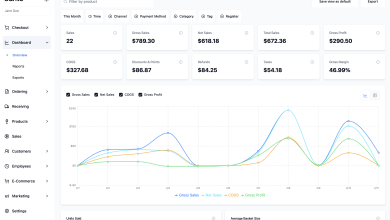
The event industry has witnessed a dramatic transformation in the past few years. From simple digital ticketing solutions to fully integrated platforms that handle registrations, networking, engagement, and analytics, event management apps have become the backbone of modern events. But in 2025, one technology stands out as the true game-changer, Artificial Intelligence (AI).
AI is no longer just an add-on; it has become a core element of how events are planned, executed, and experienced. Whether it’s personalizing attendee journeys, predicting event success, or automating repetitive tasks, AI is redefining what’s possible in event management app development.
In this blog, we’ll explore the critical role of AI in building smarter, more engaging, and future-ready event apps.
Why AI Matters in Event Management
Events are dynamic and complex. Organizers have to deal with multiple challenges like:
- Managing large-scale registrations.
- Keeping attendees engaged.
- Offering networking opportunities.
- Tracking ROI for sponsors and exhibitors.
- Delivering seamless hybrid experiences.
Traditional apps help, but they lack the intelligence to adapt in real-time. This is where AI makes a difference. By learning user behavior and analyzing event data, AI enables event apps to deliver personalization, efficiency, and insights at scale.
Partnering with an experienced event management app development company ensures these AI-driven solutions are implemented effectively, helping organizers create smarter, more engaging, and future-ready events.
1. Personalized Attendee Experience
One of the biggest strengths of AI in event management app development is personalization. Attendees expect events to be tailored to their interests rather than a one-size-fits-all approach.
- AI-based recommendations suggest sessions, workshops, or booths based on user profiles.
- Smart networking connects attendees with others who share common goals or industries.
- Personalized reminders and updates keep attendees informed about what matters most to them.
This ensures every participant has a unique and engaging journey, making events more memorable.
2. Smarter Event Planning & Automation
Event planning often involves repetitive manual work. AI can take over these tasks, allowing organizers to focus on strategy.
- Automated scheduling tools optimize event timelines.
- Chatbots and virtual assistants handle FAQs, registrations, and customer support.
- AI-driven marketing automation sends targeted emails, reminders, and promotions.
By reducing manual effort, AI helps organizers save time and improve efficiency. Additionally, integrating AI features requires ongoing updates and optimization, which can be efficiently handled through professional mobile app maintenance services to ensure the app remains smooth and error-free.
3. Predictive Analytics for Event Success
AI thrives on data, and events generate a massive amount of it, registrations, engagement, feedback, and more.
- Predictive models forecast attendance and participation levels.
- AI-powered analytics track session popularity, booth traffic, and engagement.
- Real-time dashboards give organizers insights to make quick adjustments during the event.
This data-driven decision-making ensures events run smoothly while improving ROI for sponsors and organizers.
4. Enhancing Attendee Engagement
Engagement is the heart of any event. AI-powered event apps use multiple methods to keep attendees hooked.
- Gamification with AI insights—points, badges, and challenges based on attendee actions.
- AI-driven polls and Q&A tools—ensuring relevant and engaging interactions.
- Dynamic content suggestions—articles, videos, and highlights personalized to each attendee.
With AI, engagement becomes continuous and highly interactive.
5. Smart Networking Opportunities
Networking is often the #1 reason professionals attend events. AI can make it seamless by acting as a smart connector.
- Matchmaking algorithms suggest attendees, speakers, or exhibitors to connect with.
- AI-driven chatbots facilitate introductions.
- Interest-based group creation allows attendees to join communities before, during, and after the event.
This makes networking more efficient and valuable.
6. Efficient Resource Management
For large events, managing resources like staff, venues, and logistics is critical. AI simplifies this process.
- AI-driven workforce planning ensures optimal staffing.
- Venue optimization tools track crowd flow and seating.
- Supply and logistics automation prevents shortages and delays.
By predicting demand and managing resources smartly, AI helps avoid last-minute chaos.
7. Advanced Security & Fraud Prevention
Security is a growing concern in event management. AI enhances both data and physical security.
- Facial recognition & biometric check-ins for quick, secure access.
- AI-based fraud detection prevents duplicate or fake registrations.
- Data encryption & compliance tools ensure sensitive attendee information stays protected.
With AI, attendees and organizers can trust the app with their safety and data.
8. Real-Time Language Translation & Accessibility
Events often attract global audiences. AI-powered language tools break down communication barriers.
- Real-time translations make events accessible across languages.
- Speech-to-text tools generate captions instantly.
- Voice assistants help differently-abled attendees navigate events easily.
This inclusivity ensures wider participation and better attendee satisfaction.
9. Post-Event Analytics & Feedback
The event doesn’t end when attendees leave the venue. AI continues to add value by analyzing post-event data.
- Sentiment analysis of surveys, chats, and social media mentions.
- Automated feedback summaries for organizers.
- Predictive insights for planning future events better.
This turns raw data into actionable strategies.
10. Cost Optimization & ROI Improvement
AI ensures that events are not just successful but also cost-efficient.
- Predictive budgeting tools estimate costs accurately.
- AI-driven sponsor analytics show real ROI to stakeholders.
- Smart ad targeting reduces marketing expenses.
This makes event management apps a strategic investment rather than just a tool.
The Future of AI in Event Management
Looking ahead, AI will only grow more influential. Emerging trends include:
- AI avatars and virtual hosts replacing human moderators.
- Hyper-personalized experiences based on attendee biometrics.
- Integration with AR/VR for fully immersive hybrid events.
- AI-powered sustainability tools optimizing energy and waste management at events.
For organizers, this means now is the time to embrace AI-driven solutions to stay competitive.
Why Work with the Right Development Partner?
Building an AI-powered event app requires expertise beyond traditional development. You need a team that understands both event workflows and AI technologies. That’s why partnering with an experienced app development company or choosing to hire mobile app developers with AI expertise can make all the difference.
They can help integrate advanced features, ensure data security, and build a scalable app that meets the demands of 2025 and beyond.
Final Wrap-Up
AI has shifted event management apps from simple tools to intelligent platforms that personalize experiences, optimize planning, enhance engagement, and deliver actionable insights.
From predictive analytics to smart networking and automation, AI is at the core of creating events that are smarter, smoother, and more successful.
As we move deeper into 2025, AI will continue to transform how events are organized and experienced. The key is for organizers to invest in AI-driven event management app development early, ensuring their events are not just memorable, but also future-ready.




